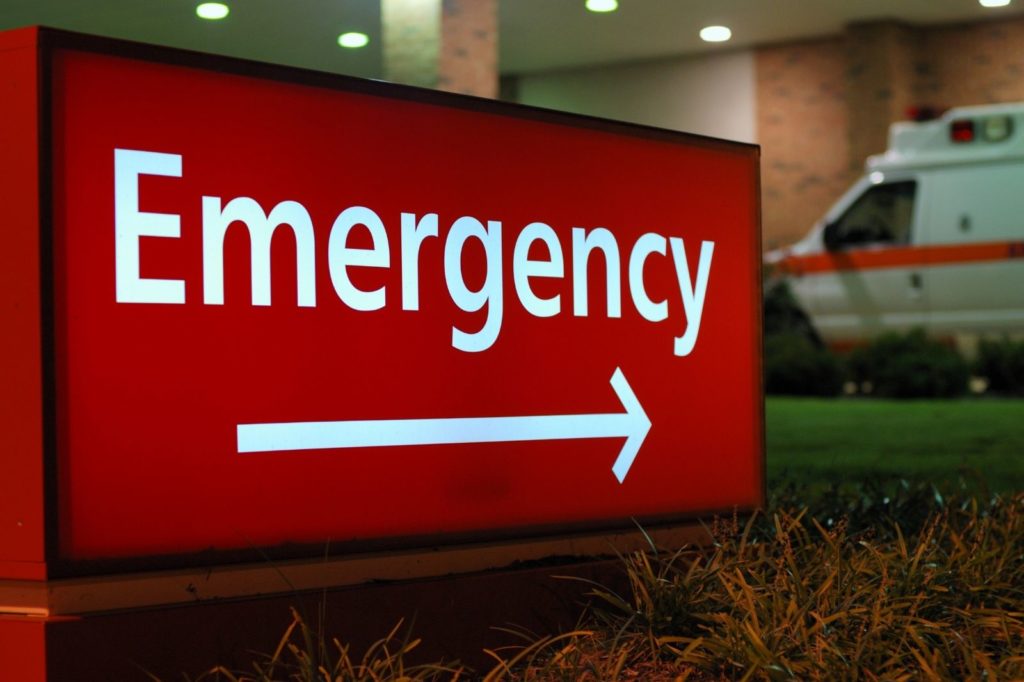Your child is in crisis. He is exhibiting symptoms of a mental health emergency, and you know he needs treatment right away. We’re fortunate to have wonderful hospitals in Bexar County, including two dedicated to children, and self-standing emergency rooms on almost every corner. But is a local emergency room (ER) your best option? What other options do you have?
Emergency treatment crisis in mental healthcare
Mental health patients face two major hurdles when they use the ER for treatment during a crisis. In the first place, psychiatric care is not a required service for most acute care hospitals. Many facilities simply don’t have the proper staff, facilities or expertise to handle a mental health emergency. At the same time, ER visits for suicide attempts and self-harm injuries are on the rise, and emergency rooms are feeling the increased strain.[i]
In the ER, diagnosis and appropriate treatment is often delayed because there isn’t a mental health expert on-site. Meanwhile the stress of the ER setting is far from ideal for managing a mental health crisis. In the case of suicidal patients, this can even lead to excessive use of restraints to keep the patient “safe” while they wait.
In the case of a patient who is at risk of harm to himself or others, the only way the general hospital can help is by reaching out to a local psychiatric hospital to locate an available bed and then transfer the child. This process sometimes involves an evaluation by a “mobile unit team” that will come to the hospital and evaluate the child, who will then likely be transported to the psychiatric hospital. The complexity and costs of these steps are high and not the best scenario for a patient in crisis or his parents.
The impact on our children who need emergency care
For a child in a mental health crisis, the results of these factors can be devastating. Most of the time, the lack of quality psychiatric care in the ER can leave young patients stuck there waiting for a transfer, often as long as 12 hours or more.
These conditions also lead to many children being released into the community without adequate follow-up care. In a study of more than 3,000 cases of self-harm, only 43% received follow-up outpatient mental healthcare.[ii]
Where to go during a mental health crisis
There are, of course, times when an emergency room clearly is the best option, in particular when your child needs physical care as well as mental, for example if the child is injured or also dealing with a substance abuse issue. If the child is physically stable, you may want to consider other options.
In Bexar County, there are two nonprofit options for crisis assessment. Clarity Child Guidance Center offers complete 24-hour crisis intervention for children ages 3-17 that includes stabilization, assessment, and development of a care plan that might include inpatient care, partial hospitalization, or outpatient services. The Center for Healthcare Services also offers crisis assessment and stabilization, and will refer patients to the appropriate services. These options could provide a higher quality of care than at an ER and a much smoother transition to support.
Of course, in a time of crisis, it’s hard to make decisions on the fly. Talk to your child’s medical and mental healthcare providers about possible scenarios. Work with them to develop a plan of action based on each situation. Write down the plan and share it with all caretakers and adult family members. Be sure to include emergency numbers and addresses. Knowing who to turn to for what level of care can go a long way toward reducing anxiety and confusion during an actual crisis.
Be prepared to provide the following when you seek treatment for your child:
- Health insurance information
- Current living situation and custody issues
- Treatment history
- Brief summary of your current concerns and needs
- While a doctor referral is not required, if a doctor or another provider referred you, let the center know
We sincerely hope you never face such a crisis. However, if your child is experiencing serious mental illness symptoms, it is critical for you to be prepared in advance and know what to do to get your child help.
For hope and healing,
Mike Hannan
In case of a medical emergency, please call 911. For a child’s mental health emergency (ages 3 to 17), call Clarity Child Guidance Center at 210-582-6412. Our crisis service department accepts walk-ins 24/7. You can find directions to our campus here. Please do not hesitate to reach out to us. We are here to help!
[i] A Literature Review: Psychiatric Boarding, The Lewin Group, October 29, 2008
[ii] Volume 51, Issue 2 , Pages 213-222.e1, February 2012. “Outpatient Care of Young People After Emergency Treatment of Deliberate Self-Harm”. Jeffrey A. Bridge, Ph.D, Steven C. Marcus, Ph.D., Mark Olfson, M.D., M.P.H.










